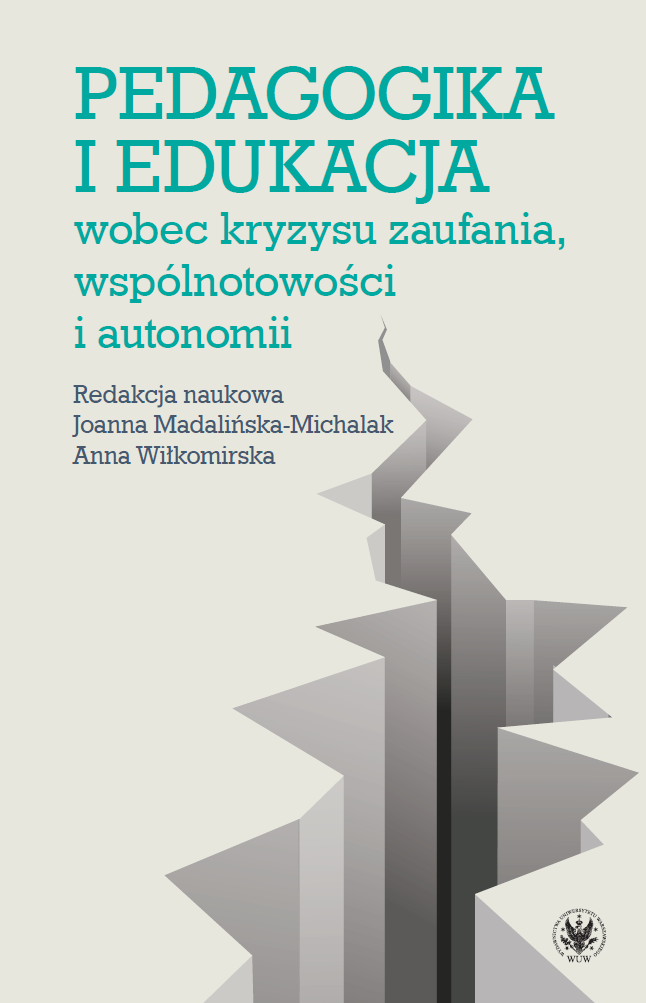Dziedzictwo idei i pęknięcia międzypokoleniowe w pedagogice polskiej (Posłowie)
The heritage of ideas and intergenerational gaps in Polish pedagogy (The postscript)
Author(s): Krzysztof Maliszewski, Ewa Marynowicz-Hetka, Lech Witkowski
Subject(s): Education
Published by: Wydawnictwa Uniwersytetu Warszawskiego
Keywords: modernity; tradition; revitalization; memory; forgetting; Stalinism; “bourgeois” tradition; applications of categories
Summary/Abstract: The text consists of three integrated parts, accepted reciprocally but written separately by the above authors as coordinators of the debates and editors of the book prepared for the 5th Special Symposium of the 10th Polish Pedagogical Congress. In the Introduction we start with recalling the detailed list of problems inserted into this framework of debates. Part One puts forward the issue of “modern tradition” as the object of a new research perspective, postulated for the history of the Polish pedagogical thinking. The purpose is defined as revitalization of the tradition of ideas in their modern applications but without just a sentimental approach or purely historical intention. We want to regain access to new ideas through old categories as defining valuable places within the symbolic heritage of pedagogy. The basic instruments contain reference to concepts of generation, duality turn-over, recognition and permit discussing political contents for contemporary democratic education. The Second Part of the paper deals with ways of preservation of the past achievements in the practical and theoretical consciousness of new generations of researchers and teachers. We deal with the concepts of memory and forgetting as interlinked within mentality, affectivity and activities. References to Ricoeur, Freud and Radlińska are among the most crucial ones here. Then the tools for analysis of links between these three dimensions are discussed in depth. The basic inspirations stem here from Bachelard. Then we treat conclusive remarks as a new opening for future discussions. We stress the necessity to settle accounts with activity of various important Polish pedagogists like Bogdan Suchodolski in the “Stalinist era” in Poland and in its follow up, e.g. by a prolonged insistence upon the concept of the “bourgeois” tradition, as disqualifying and putting aside an important part of pre-war heritage, which was basic for installing education in Poland after regaining independence in 1918 and was disqualified by the orthodox Marxist domination after 1945. We stress that some practices of exclusion and contempt are present in the contemporary pedagogical literature as well.
Book: Pedagogika i edukacja wobec kryzysu zaufania, wspólnotowości i autonomii
- Page Range: 134-152
- Page Count: 19
- Publication Year: 2020
- Language: Polish
- Content File-PDF

